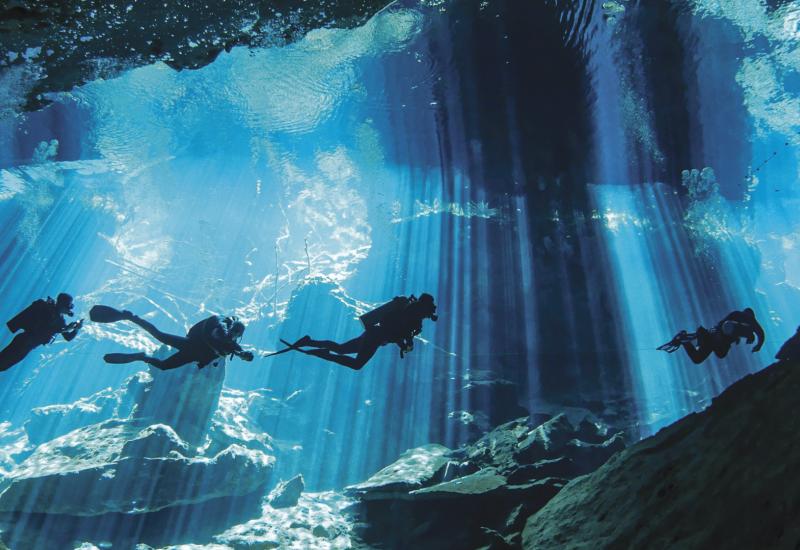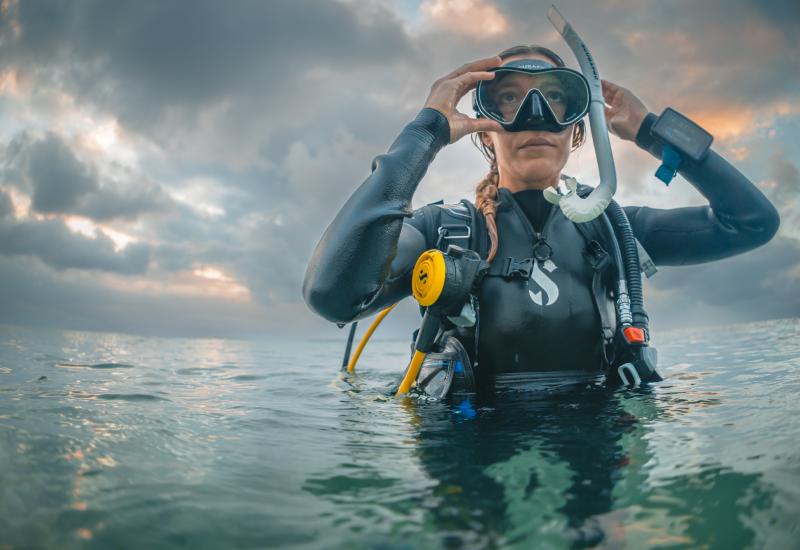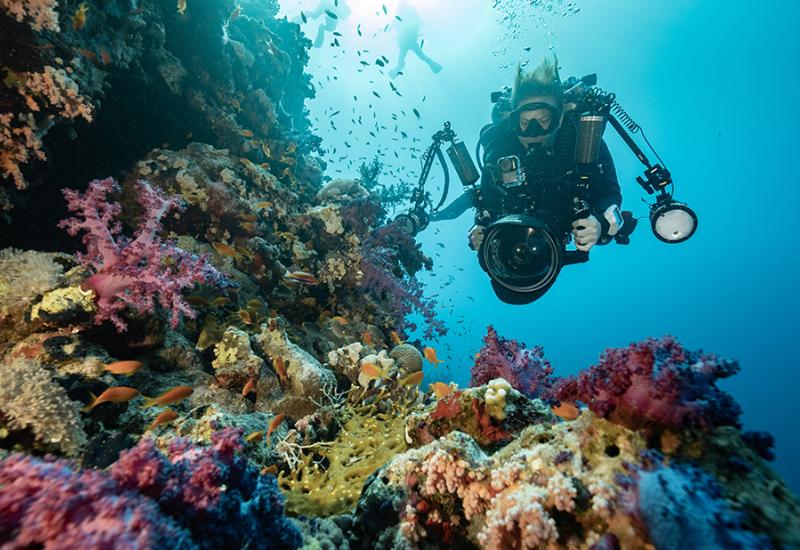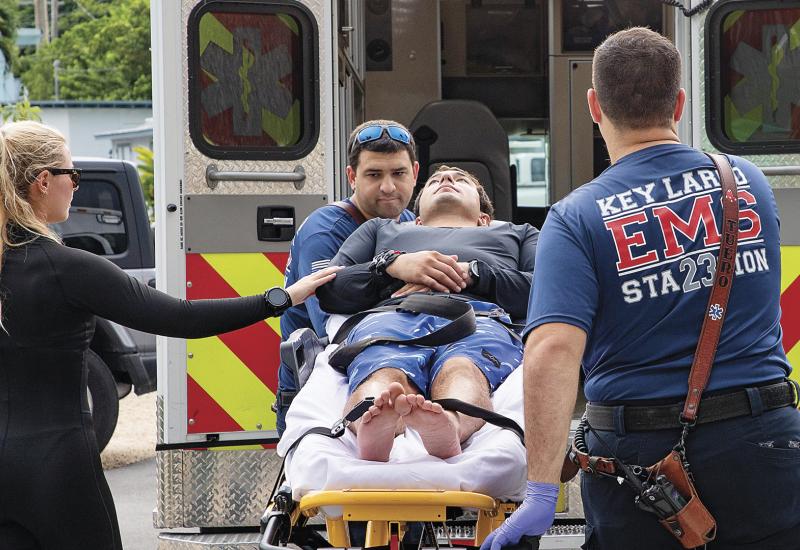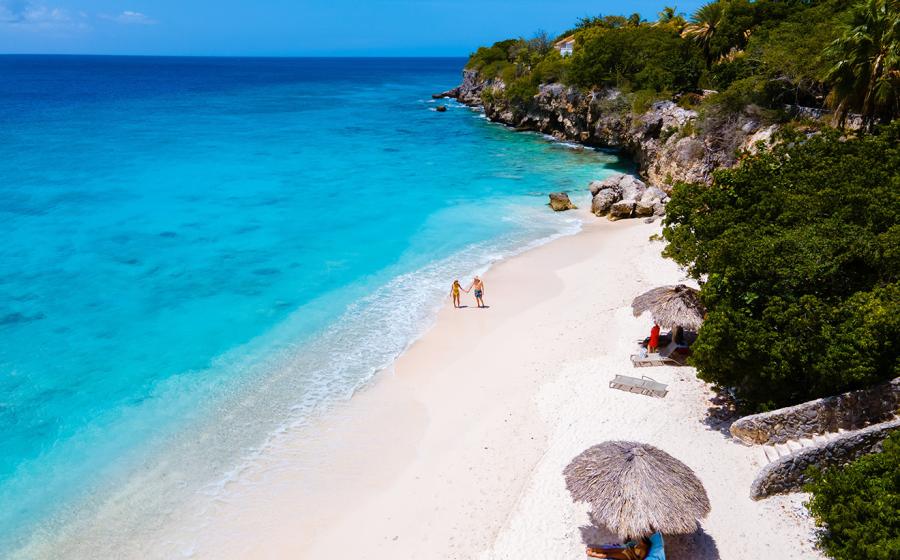Symptoms Scuba Divers Should Never Ignore
January 2007
By Selene Yeager
Denial, the joke goes, is not just a river in Egypt. And judging from conversations on scuba message boards around the globe, it runs through every corner of our sport. During a little cyber eavesdropping to see what kinds of health issues divers were surfacing with, we came across eye-popping stories of blown-off symptoms. There was the diver who chalked up post-dive joint pain, lethargy and dizziness to the flu, popped Tylenol and dived again, only to have symptoms (which had "miraculously" disappeared on descent) roar back with a vengeance upon resurfacing. Another plunged back in for a second dive despite not being able to feel his legs. And there were men and women of all ages and experience levels giving a collective shrug to burning, tingling, pounding, squeezing and myriad other signals that your body is saying "Help!"
The problem, says Neal Pollock, Ph.D., of the Center for Hyperbaric Medicine and Environmental Physiology, Duke University Medical Center, is that people have such faith in their computers and in their belief that if they do everything "right," then nothing can go wrong. "The first rule of dive-related injury is it can happen to you, no matter how careful you are," Pollock says. "You can minimize risk, but you can't eliminate it. So it's very important to, of course, dive conservatively, but also listen to your common sense and not brush off symptoms, because with many of these conditions, when you wait, things only get worse."
That said, we all know that it's common to feel a little "off" during a dive trip. We get headaches. We get nauseated. We get lightheaded. All pretty par for the course for a long day on the water. How's a diver to know what's serious and what's standard fare? If you remember nothing else, remember this, says Pollock: "Any symptom that is unusual, new or intense deserves your attention." So if you have a bum knee or chronic tennis elbow, it's probably nothing if those joints flare up in a familiar way after a long day of diving. But if they hurt more than usual or they hurt in a new way, pay attention to it. If it continues nagging at you for more than 15 or 20 minutes, consider it a symptom to be checked out.
Likewise, if a symptom shows up very shortly after surfacing, it should raise suspicions, says Jake Freiberger, M.D., MPH, associate medical director for DAN. "Research shows 50 percent of symptoms appear within 10 minutes of returning to one atmosphere, and only 15 percent of symptoms are delayed for more than one hour," he says. Still not sure if those tingling fingertips are cause for concern? Here are seven symptoms you should never ignore:
Neurological Troubles
(i.e., confusion, dizziness, weakness)
DAN puts these at the top of its list of symptoms you should worry about. These are signs that you may have decompression sickness affecting your spinal cord or brain, and that's considered serious and severe. Seek immediate medical attention.
Chest Pain, Breathing Difficulties, Hoarseness
Heart attack is one of the most common causes of death underwater. If you have some undiagnosed heart-disease risks (like high blood pressure and hardening of the arteries), the stress of diving can overload your system and leave your heart without enough oxygen, which brings on what we know as a heart attack. Never, ever ignore chest pain before, during or after a dive. Even if your ticker is running like a Timex, chest pain also may be a sign of another serious event known as pulmonary barotrauma--literally lung damage caused by overinflation of the lungs (usually caused by holding your breath while ascending). The result is that air bubbles leak out and enter the blood, which can cause pulmonary embolism or arterial gas embolism, both very serious and potentially fatal conditions. Again, seek medical help ASAP.
Belly Pain
We're not talking about garden-variety gas here, but girdle- or corset-like abdominal pain that hurts all the way around and comes on within minutes of a dive. "This is the type of mild [but new and unusual] symptom that comes on rapidly and that deserves attention," says Freiberger. "I would move rapidly to recompress a person with this symptom because it's been associated with the development of severe spinal cord involvement minutes to hours later." In other words, that little something can turn into a big something if you ignore it.
Compromising Pain
Joint pain can be easy to dismiss because you're moving your bones through so many strange positions during a dive as you hoist heavy tanks, climb ladders, shoulder overstuffed bags, and so on. "If you have low-grade shoulder pain that feels better when you massage it, it's probably OK," explains Pollock. "If you can't raise your arm more than a few inches, that's a problem." As a rule of thumb, if it hurts enough to compromise your physical abilities, get it checked.
Tingling
(as a side symptom)
Your hands and feet can tingle for lots of reasons. You got too cold. Your wetsuit is too tight. They fell asleep while you were sitting in some awkward position on a hard bench. But if you have tingling in your skin along with other symptoms like numbness, weakness and (obviously more seriously) paralysis anywhere, it can be a sign of serious DCS or arterial gas embolism; take it seriously.
Headache
(as a side symptom)
Obviously, you don't want to be running to the chamber every time you have a boomer behind your eyes. Headaches are the dandelions of diving; you find them all over the place and they're hard to completely resolve. But if your throbbing head is accompanied by skin rash, joint pain, swelling, itching, dizziness, nausea, tunnel vision, blind spots, weakness, exhaustion or other troubling symptoms, it's likely DCS and needs attention.
Skin Mottling
We're not fish, so our skin is bound to look a little funny when we're done with a long day of being waterlogged. But anyone who's soaked in the bathtub too long knows what that looks like. If you have spotty skin discoloration, mottled or marbled-looking skin, that's likely a skin hit. Skin bends are also accompanied by itching or the feeling of little bugs crawling over you. Though minor skin hits may not require treatment, more serious problems can pop up, so it's important to be evaluated by a medical professional.
Finally, no list like this can be completely comprehensive. For other symptoms not covered here, always refer to rule No. 1: If it's unusual, new or intense, pay attention. A minor nosebleed or reverse squeeze is a common occurrence. Crippling pain never is. Use your head and stay safe.
Denial, the joke goes, is not just a river in Egypt. But sometimes it's the most experienced divers who are the first to shrug off aches and pains as part of the dive life. Most of the time, that's true. But sometimes it can lead to serious issues.
The problem, says Neal Pollock, Ph.D., former research director of Divers Alert Network, is that people have such faith in their computers and in their belief that if they do everything "right," then nothing can go wrong. "The first rule of dive-related injury is it can happen to you, no matter how careful you are," Pollock says. "You can minimize risk, but you can't eliminate it. So it's very important to, of course, dive conservatively, but also listen to your common sense and not brush off symptoms, because with many of these conditions, when you wait, things only get worse."
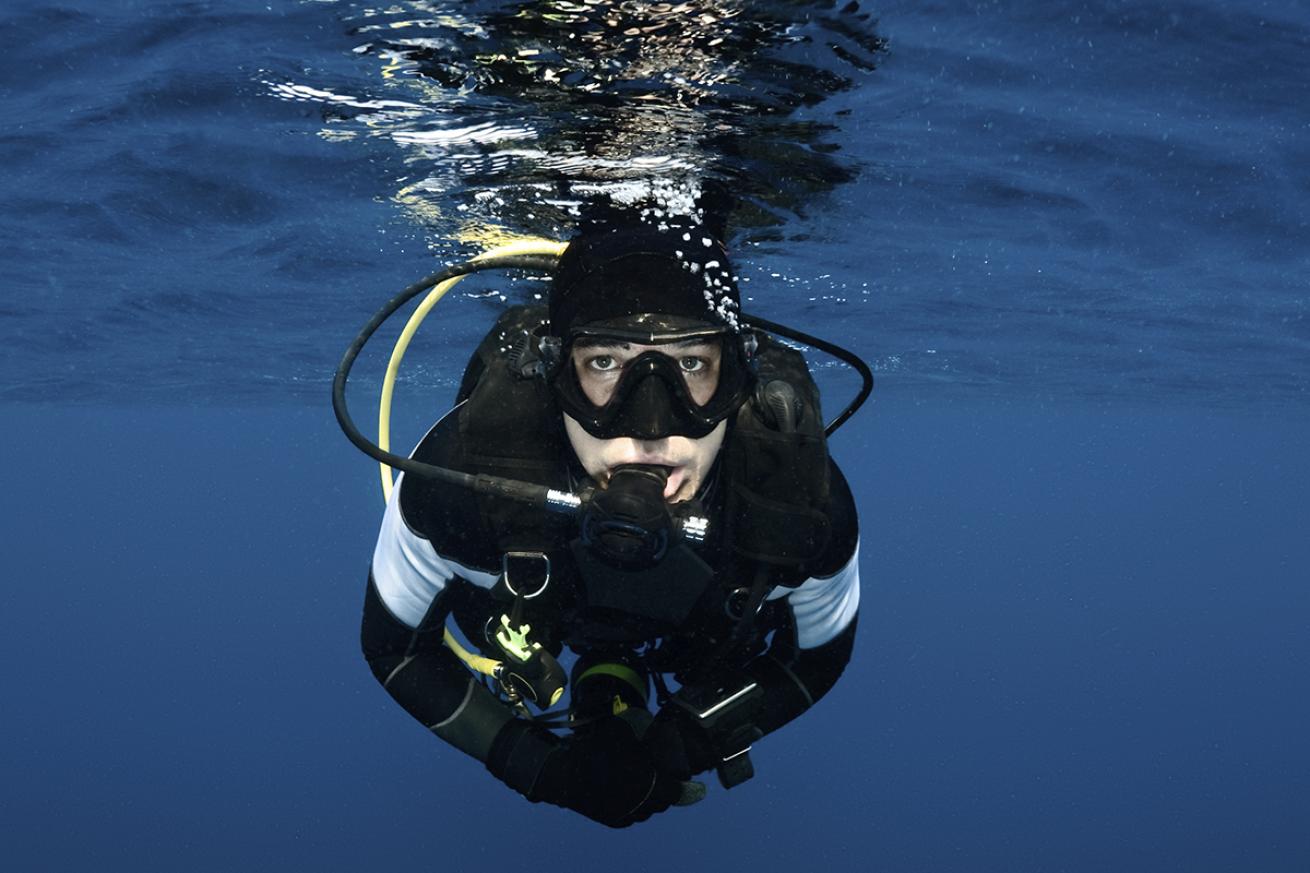
iStockphotoKeep an eye out for these key symptoms after diving.
That said, we all know that it's common to feel a little "off" during a dive trip. We get headaches. We get nauseated. We get lightheaded. All pretty par for the course for a long day on the water. How's a diver to know what's serious and what's standard fare? If you remember nothing else, remember this, says Pollock: "Any symptom that is unusual, new or intense deserves your attention." So if you have a bum knee or chronic tennis elbow, it's probably nothing if those joints flare up in a familiar way after a long day of diving. But if they hurt more than usual or they hurt in a new way, pay attention to it. If it continues nagging at you for more than 15 or 20 minutes, consider it a symptom to be checked out.
Likewise, if a symptom shows up very shortly after surfacing, it should raise suspicions, says Jake Freiberger, M.D., MPH, director of Duke Dive Medicine. "Research shows 50 percent of symptoms appear within 10 minutes of returning to one atmosphere, and only 15 percent of symptoms are delayed for more than one hour," he says. Still not sure if those tingling fingertips are cause for concern? Here are seven symptoms you should never ignore:
Neurological Troubles
(i.e., confusion, dizziness, weakness)
DAN puts these at the top of its list of symptoms you should worry about. These are signs that you may have decompression sickness affecting your spinal cord or brain, and that's considered serious and severe. Seek immediate medical attention.
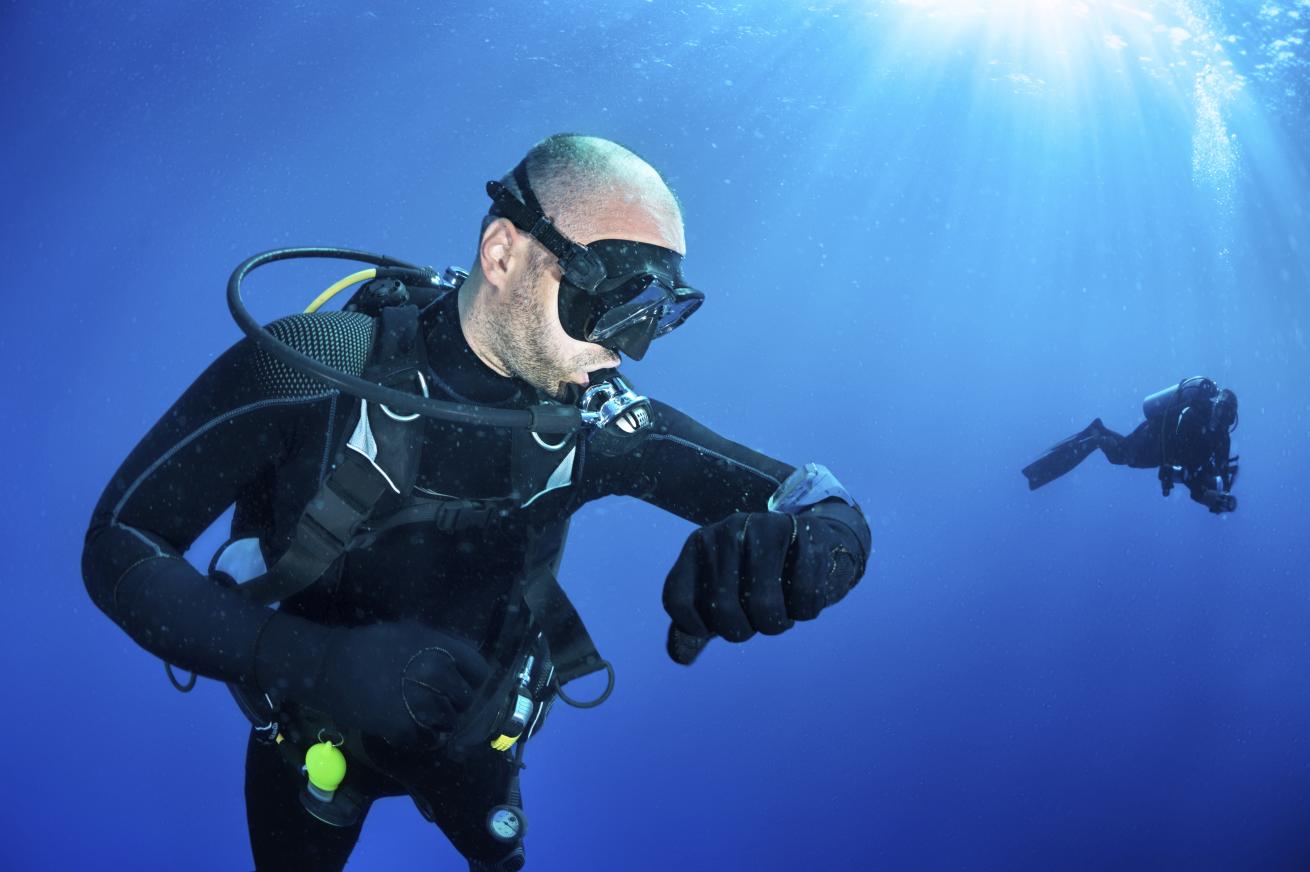
iStockphotoThere are a few symptoms diver should never ignore.
Chest Pain, Breathing Difficulties, Hoarseness
Heart attack is one of the most common causes of death underwater. If you have some undiagnosed heart-disease risks (like high blood pressure and hardening of the arteries), the stress of diving can overload your system and leave your heart without enough oxygen, which brings on what we know as a heart attack. Never, ever ignore chest pain before, during or after a dive. Even if your ticker is running like a Timex, chest pain also may be a sign of another serious event known as pulmonary barotrauma--literally lung damage caused by overinflation of the lungs (usually caused by holding your breath while ascending). The result is that air bubbles leak out and enter the blood, which can cause pulmonary embolism or arterial gas embolism, both very serious and potentially fatal conditions. Again, seek medical help ASAP.
Belly Pain
We're not talking about garden-variety gas here, but girdle- or corset-like abdominal pain that hurts all the way around and comes on within minutes of a dive. "This is the type of mild [but new and unusual] symptom that comes on rapidly and that deserves attention," says Freiberger. "I would move rapidly to recompress a person with this symptom because it's been associated with the development of severe spinal cord involvement minutes to hours later." In other words, that little something can turn into a big something if you ignore it.
Compromising Pain
Joint pain can be easy to dismiss because you're moving your bones through so many strange positions during a dive as you hoist heavy tanks, climb ladders, shoulder overstuffed bags, and so on. "If you have low-grade shoulder pain that feels better when you massage it, it's probably OK," explains Pollock. "If you can't raise your arm more than a few inches, that's a problem." As a rule of thumb, if it hurts enough to compromise your physical abilities, get it checked.
READ MORE: How To Perfect Your Buoyancy Control
Tingling
(as a side symptom)
Your hands and feet can tingle for lots of reasons. You got too cold. Your wetsuit is too tight. They fell asleep while you were sitting in some awkward position on a hard bench. But if you have tingling in your skin along with other symptoms like numbness, weakness and (obviously more seriously) paralysis anywhere, it can be a sign of serious DCS or arterial gas embolism; take it seriously.
Headache
(as a side symptom)
Obviously, you don't want to be running to the chamber every time you have a boomer behind your eyes. Headaches are the dandelions of diving; you find them all over the place and they're hard to completely resolve. But if your throbbing head is accompanied by skin rash, joint pain, swelling, itching, dizziness, nausea, tunnel vision, blind spots, weakness, exhaustion or other troubling symptoms, it's likely DCS and needs attention.
Skin Mottling
We're not fish, so our skin is bound to look a little funny when we're done with a long day of being waterlogged. But anyone who's soaked in the bathtub too long knows what that looks like. If you have spotty skin discoloration, mottled or marbled-looking skin, that's likely a skin hit. Skin bends are also accompanied by itching or the feeling of little bugs crawling over you. Though minor skin hits may not require treatment, more serious problems can pop up, so it's important to be evaluated by a medical professional.
Finally, no list like this can be completely comprehensive. For other symptoms not covered here, always refer to rule No. 1: If it's unusual, new or intense, pay attention. A minor nosebleed or reverse squeeze is a common occurrence. Crippling pain never is. Use your head and stay safe.

